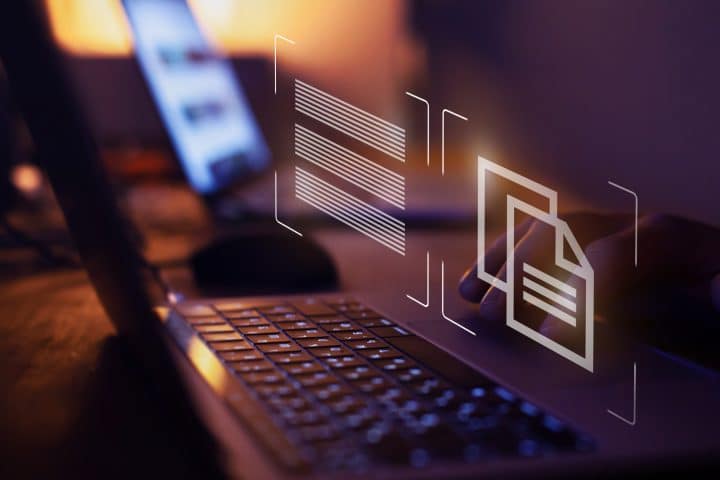Discover the importance of cybersecurity for businesses. Learn how to protect your company's digital assets and secure your business information with the right security controls.

Cybersecurity protects your digital world: your devices, internal systems, and sensitive data. It prevents hackers from breaking in and ensures your clients' data stays safe.
These layers include your network, your applications, the information you retain and transmit, and even how your employees use all of these systems. Whether it is about preventing someone from invading your network or ensuring your team does not get caught by a spear phishing scam, cybersecurity is what stands between you and that potential disaster. In an age when a single mouse click can unleash a massive data leak, it is not just about defending — it’s about staying ahead of the game.
Modern businesses rely more on technology than ever before, and this trend is only growing. Computers, smartphones, and online systems are at the core of individuals, small businesses, and enterprises. Today, companies and organizations accumulate, process, and store enormous amounts of data — much of it containing sensitive or proprietary information.
Unfortunately, the widespread adoption of smartphones, IoT devices and misconfigured cloud environments has created new attack surfaces that didn’t even exist a couple of decades ago. As a result, data theft and cyberattacks have increased significantly. Without proper protection, sensitive data is exposed to unauthorized access which can have serious financial and reputational implications. That’s why strong cybersecurity is no longer optional — it’s imperative.
No one is immune to the variety of cyberattacks that have been growing quickly in recent times. These are the most prevalent and hazardous of them:
1.Phishing
Phishing is a type of social engineering attack in which cybercriminals masquerade as legitimate contacts like banks, partners, even internal employees. They aim to trick recipients into disclosing sensitive information, such as login credentials or financial data. Such attacks often arrive by email but can also take the form of text messages or phony websites.
2.Malware
Malware is just short for malicious software. Malware is created by cybercriminals to disrupt or damage a legitimate user's computer. The software typically spreads through seemingly harmless downloads or unsolicited email attachments. These attacks can paralyze operations and lead to substantial economic loss.
3.DDoS Attacks
Distributed Denial-of-Service (DDoS) attacks overwhelm a company’s servers or network with traffic, making systems slow or completely unavailable. This interrupts regular operations and can undermine reputation, which is especially high for online services.
4.Poor Cloud Security
As organizations have increased cloud adoption, misconfigured cloud settings have become a key vulnerability. Companies risk data breaches and leaks if access permissions aren’t managed appropriately or sensitive data isn’t encrypted.
5.Unsecured IoT Devices
Internet of Things (IoT) devices — such as smart thermostats, security cameras, or even office printers — often do not come with robust built-in security. These devices can serve as gateways for hackers into a company’s wider network.
Understanding these threats is the first step toward building a secure digital environment for your business.


1.Penetration Testing Services
Comprehensive penetration testing to identify vulnerabilities before cybercriminals can exploit them. Our in-depth reports and expert analysis help you better prepare and minimize risks.
2.Virtual CISO Services
As your Virtual Chief Information Security Officer (vCISO), we bring specialized cybersecurity expertise, design a mature cybersecurity program, and significantly reduce risk to your organization.
3.CyberSecurity Consulting
Our CyberSecurity Consulting delivers years of experience on projects for some of the world’s largest organizations to support your organization. Access that experience on demand to help your projects succeed.
4.Incident response
Our incident response services can help you respond quickly and effectively to a cybersecurity breach. We investigate the attack, contain the threat, mitigate the damage and help return the organization to normal as quickly as possible. Our data-driven approach and structured response plan equips your organization to respond to unforeseen incidents with increased competence and efficacy, minimizing long-term impact.
1.SOC 2 Compliance
We provide SOC 2 gap assessments, guidance, and control implementations to ensure the best possible outcome as you prepare for your SOC 2 attestation audit. Develit consultants fine-tune your cybersecurity controls and overall security posture to assist your organization in achieving and maintaining SOC 2 compliance, an important criterion for many customers and investors. We want you to know that as your SOC 2 advisor, we are with you from the preparation to certification.
2.Healthcare Compliance Services
Healthcare organizations still present one of the most highly valued targets for attackers and identity thieves, driving stringent expectations of safeguarding access to healthcare information systems, patient records, and electronic health data. Develit is a trusted advisor in the implementation of effective data protection strategies specific to the healthcare sector. From conducting a full risk assessment to the implementation of necessary administrative, technical and physical safeguards, we assist organizations in improving their security posture and minimizing threat exposure.
3.Financial Compliance Services
We work closely with organizations across the finance and services sectors to strengthen data protection practices that meet industry expectations in terms of privacy and security. Such work ranges from risks of assessments of sensitive financial data to developing strategies that ensure secure data handling and adherence to internal compliance standards. While the challenges may be complex, our experts are ready to deliver tailored solutions that fit the unique needs of your operations.
1.Planning
Our specialists perform a full audit of your development pipeline and security procedures to identify vulnerabilities and offer guidance on improving SDLC security.
2.Analysis
By means of architecture review and threat modelling we make sure that security design principles are considered in your architecture decisions, and we identify potential threats even before the application is designed and developed.
3.Design
We integrate security requirements from the outset, helping ensure your systems follow best practices and align with your business objectives — giving you confidence in both security and performance.
4.Implementation
This phase includes all kinds of security techniques, tools and best practices, like code review, dependency analysis, white box appsec testing, embedding DevOps processes and creating a secure CI/CD pipeline.
5.Testing and deployment
Using security testing and application security penetration testing, we uncover threats and vulnerabilities and remediate them to harden your software's security posture.
6.Maintenance
All vulnerabilities are thoroughly triaged, and we continuously monitor and improve the security of your systems by doing Infrastructure pentesting, vulnerability management as well as conducting regular trainings for your engineering teams.
The best cybersecurity services are contingent on the following needs and requirements: